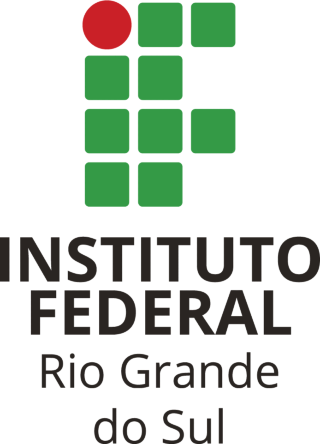| dc.contributor.advisor |
Franco, Márcia Häfele Islabão |
pt_BR |
| dc.contributor.advisor |
Peres, André |
pt_BR |
| dc.contributor.author |
Deitos, Fernanda Nunes |
pt_BR |
| dc.date.accessioned |
2019-05-21T20:28:22Z |
|
| dc.date.available |
2019-05-21T20:28:22Z |
|
| dc.date.issued |
2018 |
pt_BR |
| dc.identifier.uri |
https://dspace.ifrs.edu.br/xmlui/handle/123456789/106 |
|
| dc.description.abstract |
Entende-se que o processo de aquisição da escrita é considerado um desafio nos primeiros anos do ensino fundamental. Dessa forma, é necessário que se busquem recursos que efetivamente auxiliem nos processos de ensino e aprendizagem, desenvolvendo as habilidades necessárias para consolidar a escrita. Entre esses recursos estão presentes os jogos digitais, capazes de motivar e engajar os seus participantes, além de serem utilizados no contexto educacional, para o ensino de diversas áreas do conhecimento. Na área da linguagem podem ser empregados para desenvolver habilidades de escrita, leitura e oralidade, de forma lúdica e incentivadora. Nesse sentido, a motivação dessa pesquisa surgiu da experiência e das reflexões da autora em sua prática em sala de aula, quando observou que a atividade do ditado, tradicionalmente utilizada para desenvolver as práticas de escrita, causava frustração aos alunos quando estes se deparavam com seus erros, sem conseguir compreendê-los como parte essencial do processo de aprendizagem. Pensando nisso, o presente trabalho aborda a tecnologia aplicada à educação a partir de um jogo digital de ditado, em que o principal objetivo é auxiliar a aprendizagem da escrita e da ortografia de crianças do Ensino Fundamental I, abordando o benefício que a atividade tradicional do ditado traz ao ser inserida no contexto tecnológico. Para isso a metodologia aplicada trata-se de um estudo de caso que está inserido no campo pesquisa-ação, por seu caráter participativo e por realizar uma intervenção em uma realidade específica. Também se caracteriza uma pesquisa aplicada de caráter exploratório e explicativo, buscando proximidade com o tema de estudo e na formulação de hipóteses da pesquisa. Neste trabalho, foram realizadas diversas atividades que contemplaram a construção, aplicação e avaliação do jogo da pesquisa. Entre elas, estão presentes entrevistas semiestruturadas, no intuito de perceber as necessidades da turma e a visão da professora, a metodologia do design participativo, onde os alunos puderam auxiliar na construção do jogo, assim como a aplicação do jogo onde foram realizadas etapas de avaliação com um questionário para os alunos. As análises realizadas apontam que o uso do jogo repercutiu na motivação, no engajamento e na colaboração dos alunos. Consequentemente, aprimoraram seu aprendizado referente à escrita, pois verificou-se, que os alunos persistiram no jogo até chegar ao acerto, fato que não ocorria com a atividade tradicional, como informado pela professora da turma. Além disso, foi verificado maior engajamento dos alunos no jogo ao perceberem-se como parte deste, através da percepção de suas contribuições em sua construção, através do Design Participativo.
Palavras-chave: Ditado. Jogo Digital. Escrita. Design Participativo. |
pt_BR |
| dc.description.abstract |
It is understood that the process of acquiring writing skill is considered a challenge in the early years of elementary school. Thus, it is necessary to seek resources that effectively assist in the teaching and learning processes,
developing the necessary skills to consolidate writing. Among these resources are the digital games, capable of motivating and engaging their participants, besides being used in the educational context, for the teaching of various
areas of knowledge. In the area of language, they can be used to develop writing, reading and speaking skills, in a playful and incentive way. Thus, the motivation of this research arose from the experience and reflections of the
author in her own classroom, in which she realized that the dictation activity, traditionally used to develop writing skills, caused frustration to the students when they were confronted with their mistakes, and were unable to understand them as an essential part of the learning process. With that in mind, the present work addresses the technology applied to teaching, observed from the use of a
digital dictation game, where the main objective is to assist the learning of writing and spelling of children of Elementary School I, confirming the benefits
that the traditional dictation activity promotes when inserted into the technological context. The methodology applied it is a case study is inserted in the research-action field, due to its participative nature and because it
promotes an intervention in a specific reality. It is also characterized as an exploratory and and explanatory research, seeking the approach with the subject of study and in the formulation of hypotheses of the research. In this work, several activities were carried out that contemplated a construction, application and evaluation of the research game. Among them are the semireleased interviews, in order to understand the needs of the class and the teacher's view, the methodology of participatory design, where the students can help in the construction of the game, as well as an application of the game
where is the questionnaire for students. The analyses carried out so far point out that the use of the game reflected in the motivation, engagement and
collaboration of the students, therefore showing an improvement in their learning of the writing skills, since it was seen that they would not give up playing the game until they got it right, a fact that did not occur with the
traditional activity, as informed by the teacher. In addition, was verifiedgreater engagement of the students in the game as they perceived themselves as part of this through the perception of their contributions in its construction, through Participatory Design. |
en |
| dc.format.mimetype |
PDF |
pt_BR |
| dc.language.iso |
por |
pt_BR |
| dc.rights |
Open Access |
en |
| dc.subject |
Informática |
pt_BR |
| dc.subject |
Ciência e Tecnologia da Computação |
pt_BR |
| dc.title |
Jogo de ditado digital: o erro como parte do processo de aprendizagem |
pt_BR |
| dc.type |
Dissertação |
pt_BR |
| dc.degree.level |
Mestrado |
|
| dc.degree.date |
2018 |
|
| dc.degree.local |
Porto Alegre, BR-RS |
|
| dc.degree.program |
Mestrado Profissional em Informática na Educação |
|
| dc.degree.department |
Campus Porto Alegre |
pt_BR |



